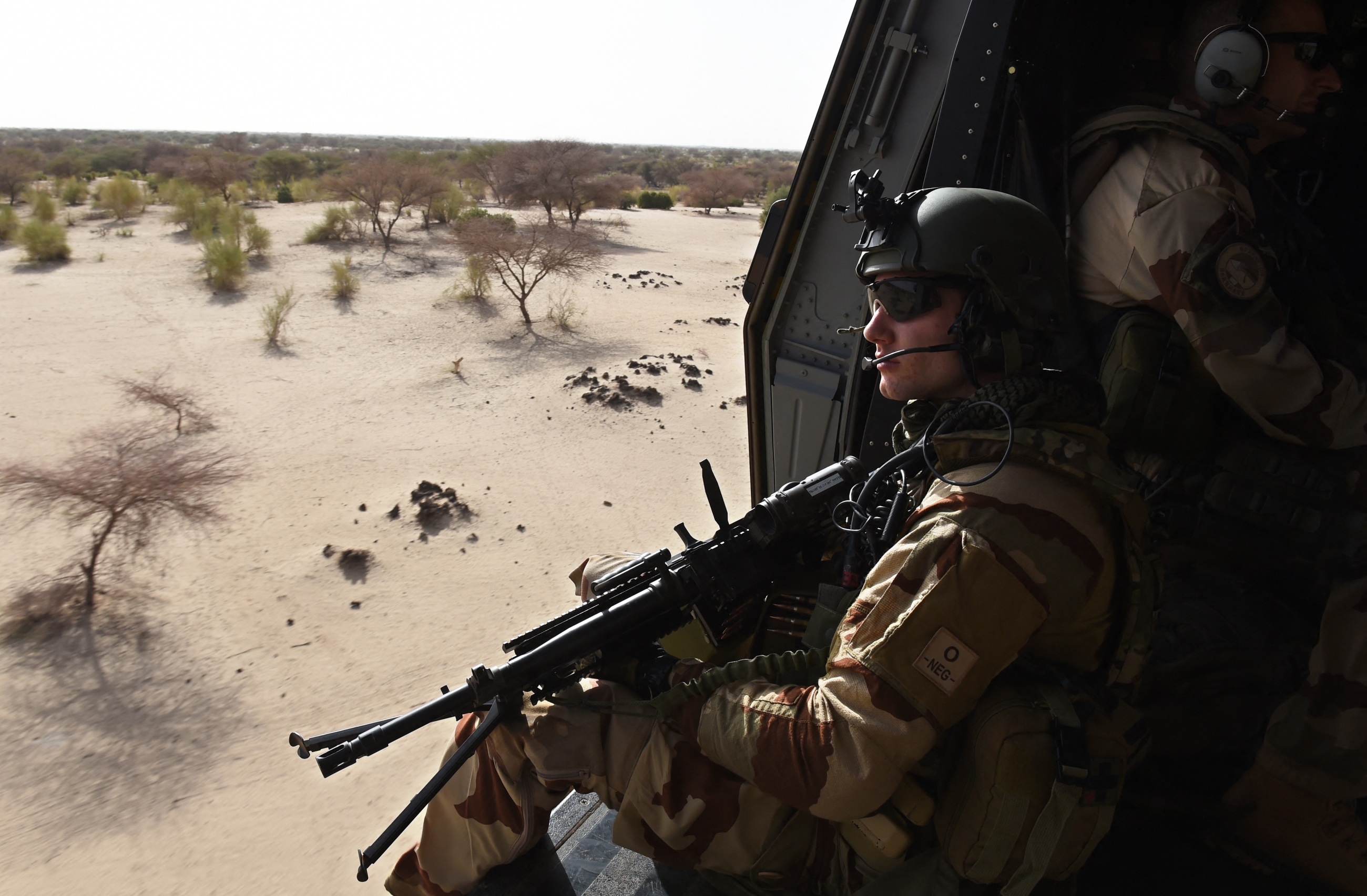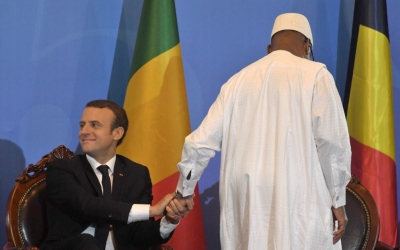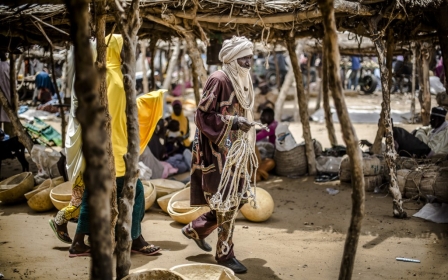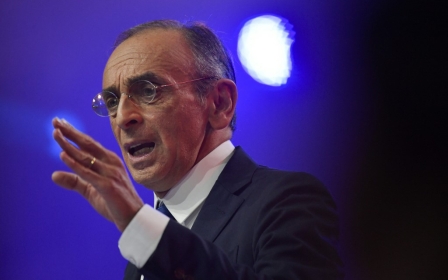France: Macron defends decision to pull troops from Mali

French President Emmanuel Macron has defended the decision to pull his country's forces from Mali where they had been embedded fighting militant groups since 2013.
The decision to pull out of the West African country comes following a breakdown in relations with the country's rulers.
The deployment has been fraught with problems for France. Of the 53 French soldiers killed serving in West Africa's Sahel region, 48 died in Mali.
'We cannot remain militarily engaged alongside de facto authorities whose strategy and hidden aims we do not share'
- President Emmanuel Macron
The number of civilians killed in the conflict is disputed. The New Humanitarian calculates that over 50 civilians were likely killed by French forces between 2013-2021 while Paris puts the number at seven.
"Multiple obstructions" by the military junta that took power in August 2020 meant the conditions were no longer in place to operate in Mali, said a statement signed by France and its African and European allies.
New MEE newsletter: Jerusalem Dispatch
Sign up to get the latest insights and analysis on Israel-Palestine, alongside Turkey Unpacked and other MEE newsletters
The decision applies to both the 2,400 French troops in Mali and a smaller European force of several hundred soldiers, called Takuba, that was created in 2020 with the aim of taking the burden off French forces.
Speaking at a press conference on Thursday, Macron denied that France's operation had been a "failure".
"I completely reject this term," he said.
Macron said that at the start of the operation in 2013, Mali had requested France to deploy troops to counter a militant insurgency that was headed towards the capital and in doing so had prevented the state from collapsing.
"We cannot remain militarily engaged alongside de facto authorities whose strategy and hidden aims we do not share," Macron explained.
He said that France's bases in Gossi, Menaka and Gao in Mali would be closed within the next four to six months.
The withdrawal would be carried out in an "orderly" manner, he vowed.
The announcement comes at a critical time for Macron, just days before he is expected to make a long-awaited declaration that he will stand for a second term at elections in April.
Macron's priority will now be to ensure that the withdrawal does not invite comparisons with the chaotic US departure from Afghanistan last year.
'An inglorious end'
France first deployed the troops at Mali's request in 2013, and while the militants were prevented from reaching the capital Bamako, the insurgency was never fully quelled.
In 2015, the rebels regrouped and moved into the centre of Mali, an ethnic powder keg, before launching raids on neighbouring Burkina Faso and Niger.
Now, new fears have emerged of a militant push toward the Gulf of Guinea.
"It is an inglorious end to an armed intervention that began in euphoria and which ends, nine years later, against a backdrop of crisis between Mali and France," wrote French daily Le Monde.
Macron denied that the intervention had been in vain.
"What would have happened in 2013 if France had not chosen to intervene? You would for sure have had the collapse of the Malian state," he said, hailing the decision of his predecessor Francois Hollande to deploy troops.
France and its allies vowed to remain engaged in fighting "terror" in the region, including in Niger and the Gulf of Guinea, he said, adding that the outline of this action would be made clear in June.
Macron warned that al-Qaeda and the Islamic State group had made the Sahel and the Gulf of Guinea nations "a priority for their strategy of expansion," and said the Takuba forces in Mali would be shifted to neighbouring Niger.
Speaking alongside Macron, Senegalese President Macky Sall said fighting "terrorism in the Sahel cannot be the business of African countries alone".
The announcement on Mali came ahead of a two-day summit of EU and African leaders in Brussels starting on Thursday, which seeks to strengthen ties with pledges of new investments for a continent where China and Russia are making inroads.
Middle East Eye delivers independent and unrivalled coverage and analysis of the Middle East, North Africa and beyond. To learn more about republishing this content and the associated fees, please fill out this form. More about MEE can be found here.





